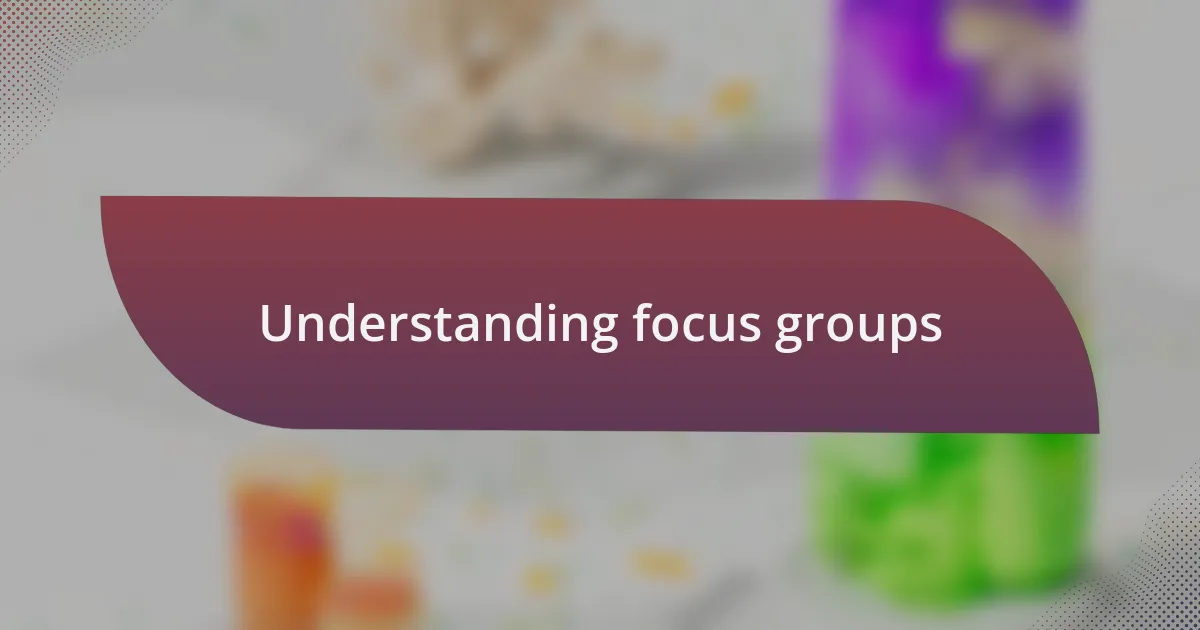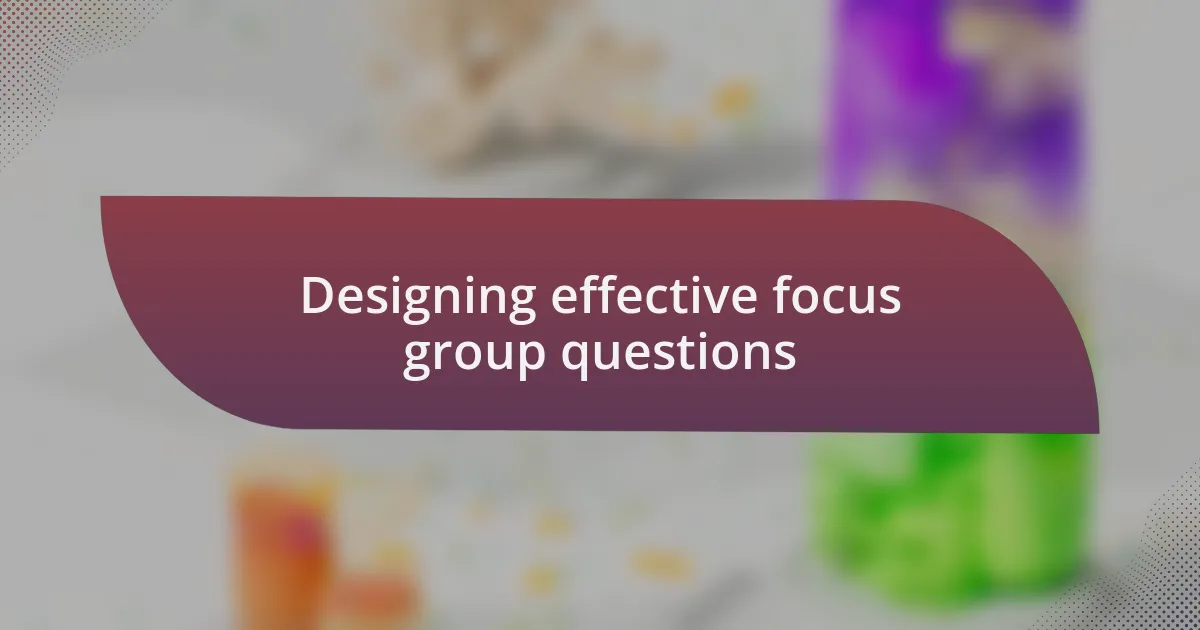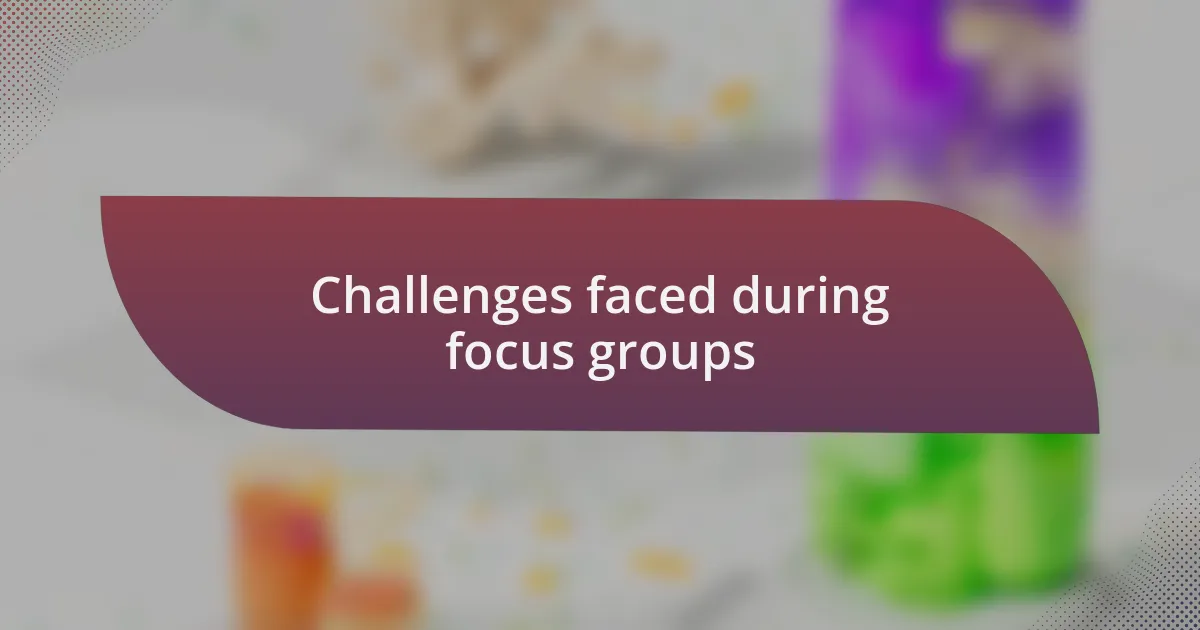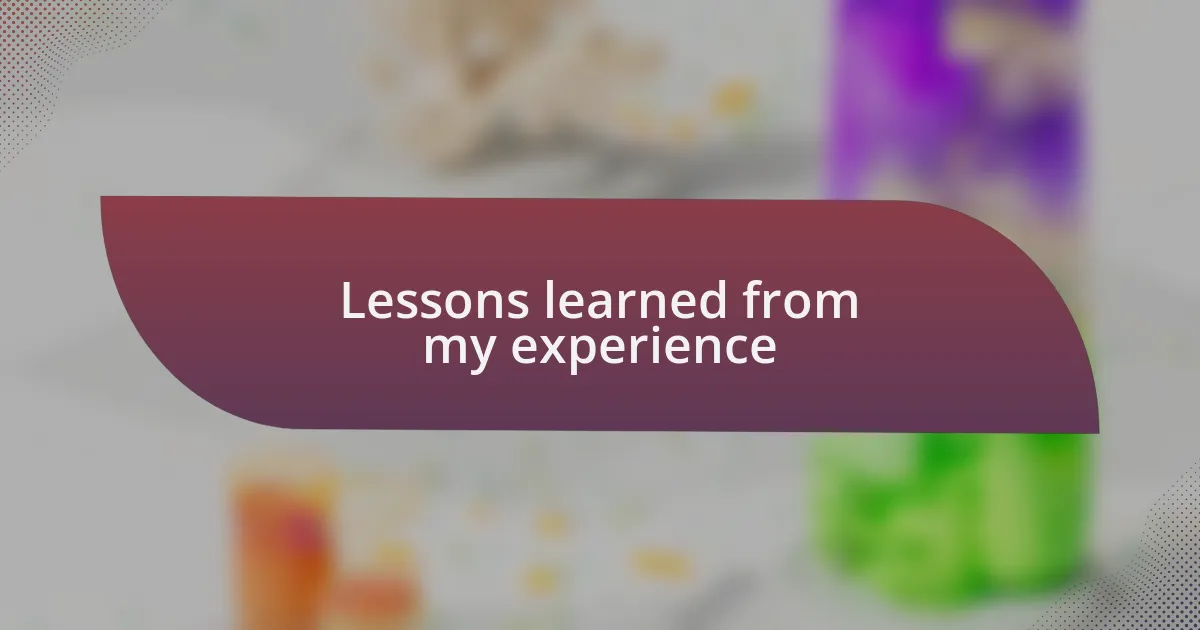Key takeaways:
- Focus groups serve as a valuable tool for gauging public opinion, allowing participants to share nuanced perspectives in a safe environment.
- Effective focus group questions should be clear, open-ended, and sequenced appropriately to encourage trust and deeper discussions.
- Challenges in focus groups include managing dominant personalities and varying levels of participant understanding, necessitating a careful approach to facilitation.
- Active listening and flexibility in discussion structure enhance the richness of conversations, while post-session reflection aids in identifying themes and insights.

Understanding focus groups
When I first encountered focus groups, I was struck by how they can serve as a pulse check on public opinion. It’s fascinating to observe a diverse group of participants engage in discussions that unveil nuanced perspectives on policy issues. Have you ever thought about how a single conversation among a few individuals can reflect the views of many?
In one memorable session, I watched as a participant hesitated before sharing a personal experience related to the topic. The room was silent, and you could feel the tension; it reminded me that focus groups are not just about gathering data, but also about creating a safe space for voices to be heard. This emotional layer is vital because it often reveals insights that quantitative data alone cannot capture.
I also learned that the moderator’s role is crucial in guiding these discussions. Their ability to foster engagement can lead to deeper conversations, uncovering underlying motivations and emotions. Have you ever considered how skilled facilitation might transform a focus group into a treasure trove of data? I certainly have, and it underscored the importance of having someone who is both empathetic and perceptive at the helm.

Designing effective focus group questions
Crafting effective focus group questions is an art, and I’ve found that clarity is key. When I designed my first set of questions, I noticed how straightforward language encouraged participants to share openly. Have you experienced the frustration of complex questions leading to confusion instead of insightful responses? Simplifying my wording often transformed the dynamics of the conversation.
Another thing I learned is the importance of open-ended questions. They invite participants to elaborate on their thoughts, rather than providing simple yes or no answers. I remember one focus group where I asked, “What are your thoughts on the impact of this policy?” The responses flowed freely, revealing layers of sentiment and perspective that I hadn’t anticipated. It was invigorating to see how a well-phrased question can unlock such rich discussion.
Finally, I discovered that timing and sequencing matter immensely. Introducing sensitive questions later in the discussion allows participants to build trust and comfort with the group. During one session, I noticed reluctance at first, but as the conversation progressed, weaving in deeper questions led to surprising, candid moments. Have you ever felt how trust in a setting can radically alter the depth of responses? That alignment really highlighted the skill in orchestrating the flow of questions.

Challenges faced during focus groups
When conducting focus groups, one major challenge I faced was managing dominant personalities. In one session, a particularly vocal participant overshadowed others, making it difficult for quieter voices to emerge. It left me wondering: how do we ensure everyone feels comfortable enough to contribute? I learned that gently redirecting the conversation and explicitly inviting quieter members to share can work wonders in balancing the discussion.
Another hurdle was participants’ varying degrees of understanding regarding the topic. I recall one group where several participants were well-versed, while others struggled with basic concepts. It was frustrating, as their ability to engage meaningfully was compromised. This experience highlighted the need to gauge participants’ background knowledge in advance, ensuring that everyone is on the same footing to contribute effectively.
Timing can also be a tricky aspect during focus groups. I once found myself rushing through questions to stay on schedule, which resulted in superficial responses. It’s a delicate dance; I had to remind myself that depth often outweighs speed. I now prioritize creating a comfortable pace, allowing time for reflection and discussion, despite the pressure of time constraints. Have you ever felt that sense of urgency while trying to dig deeper in conversations? That insight was invaluable for future sessions.

Lessons learned from my experience
One of the most significant lessons I’ve learned from conducting focus groups is the power of active listening. In one session, I noticed how tuning in to the participants’ emotions transformed the conversation. When I focused on understanding their feelings instead of just the content, the discussions became richer and more meaningful. Have you ever felt that a simple nod or a follow-up question can open up a world of insight? It was a revelation for me.
I also realized the importance of flexibility within the structure of the focus group. Early on, I adhered too rigidly to my script, which stifled natural conversation flow. I vividly remember a moment when a participant shared a personal story that was only tangentially related to our topic. Allowing that detour led to valuable insights that I never would have captured otherwise. In essence, embracing spontaneity can yield unexpected rewards.
Lastly, the significance of post-session reflection cannot be overstated. After every focus group, I would take time to jot down my thoughts and feelings about what worked and what didn’t. One evening, while I was reviewing my notes, I had an epiphany about a recurring theme that I had missed during the discussions. How many other insights might slip through the cracks without this reflective practice? This habit has become essential for me, shaping my approach in subsequent groups and enhancing the overall quality of my research.